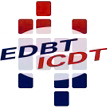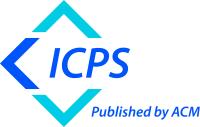EDBT Call for Papers
The International Conference on Extending Database Technology is a leading international forum for database researchers, practitioners, developers, and users to discuss cutting-edge ideas, and to exchange techniques, tools, and experiences related to data management. Data management is an essential enabling technology for scientific, engineering, business, and social communities. Data management technology is driven by the requirements of applications across many scientific and business communities, and runs on diverse technical platforms associated with the web, enterprises, clouds and mobile devices. The database community has a continuing tradition of contributing with models, algorithms and architectures, to the set of tools and applications enabling day-to-day functioning of our societies. Faced with the broad challenges of today's applications, data management technology constantly broadens its reach, exploiting new hardware and software to achieve innovative results.
EDBT 2014 invites submissions of original research contributions, as well as descriptions of industrial and application achievements, and proposals for tutorials and software demonstrations. We encourage submissions relating to all aspects of data management defined broadly, and particularly encourage work on topics of emerging interest in the research and development communities.
Download a PDF version of the EDBT 2014 CfP here.
The Proceedings of EDBT will be published by ACM in the International Conference Proceedings Series.
Important Dates
Abstract submission deadline: 15th October 2013, 11:59pm CET
Paper submission deadline: 22nd October 2013, 11:59pm CET
Notification: 22nd December 2013
Camera-ready deadline: 23rd January 2014, 11:59pm CET
Topics of Interest
We welcome papers on topics including, but not limited to, the following:
- Availability, Reliability, and Scalability
- Tuning, Monitoring, Benchmarking and Performance Evaluation
- Big Data Storage, Processing and Transformation
- Data Curation, Annotation and Provenance
- Data Management in Clouds
- Complex Event Processing and Data Streams
- Data Mining, Clustering and Knowledge Discovery
- Data Warehousing, Large-Scale Analytics, and ETL Tools
- DBMS on emerging hardware architectures
- Heterogeneous Databases and Interoperability
- Middleware and Workflow Management
- Parallel, Distributed and Grid Data Management
- Privacy, Trust and Security in Databases
- Indexing, Query Processing and Optimization
- Semantic Web and Knowledge Management
- Sensor and Mobile Data Management
- Scientific and Statistical Databases
- Social Networks and Analysis
- Graph Databases
- Spatial, Temporal, and Geographic Databases
- Text Databases and Information Retrieval
- XML and Semi-Structured Databases
- Modeling, Mining and Querying User Generated Content
- Data Quality
- User Interfaces and Data Visualization
Papers should not exceed 12 pages, and will be selected for inclusion in the program on the basis of their originality, significance and rigor.
Duplicate Submissions
All submissions must be original work that currently is not in submission to any other venue. A paper submitted to EDBT cannot be under review for any other publishing forum or presentation venue (including conferences, workshops, and journals) during the time it is being considered for EDBT. Furthermore, after you submit to EDBT, you must await our response and only resubmit elsewhere if your paper is rejected (or withdrawn at your request) from EDBT. Violation of this policy will result in a straight reject. This restriction applies to identical submissions as well as to submissions with a substantial overlap in scientific content and results.
Submission Guidelines
All aspects of the submission and notification process will be handled electronically. All papers should be submitted in electronic format using EasyChair. The submission web site is:
https://www.easychair.org/conferences/?conf=edbt2014
Abstract submission is on October 15th, 2013, 11:59pm CET. Paper submission is on October 22, 2013, 11:59pm CET. No late papers will be accepted.
EDBT 2014 submissions are reviewed following the single blind review process, meaning, you need not hide authors's names and affiliations.
Submission Format Instructions
Please read the formatting instructions carefully before submitting. Research, demonstration and industrial papers must all be formatted according to the conference's camera-ready format using the ACM proceedings double-column format. They must be submitted as PDF documents, and must follow the style of the document templates by ACM.
Templates to prepare your submission can be found on the ACM SIG Proceedings templates website. It is not permissible to change the template's font size, margins, intercolumn spacing, or line spacing. Templates are available in Word and LaTeX (version 2e). For the LaTeX formats, you may use either the standard style or the SIG-alternate style.
Inter-Disciplinary and Visionary Papers
These papers should not exceed 6 pages, and will be selected for inclusion in the program principally on the basis of their ability to bridge the gap between databases and other disciplines and push the boundaries of current database research with radically new vision. Originality and significance will be judged based on models, algorithms and applications that address emerging challenges and that require extensions to established research. PC members will receive special guidelines to judge these papers. Presentation of these papers will be organized in a panel discussion.














